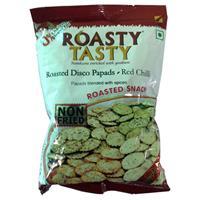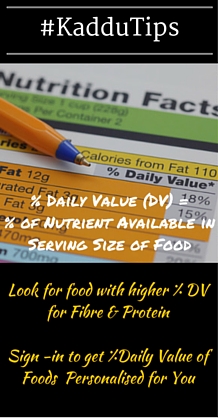
Bhikharam Chandmal BC Bikaneri Spicy Bhujia
Products in ‘Crispies & Namkeen’ category range from 0.5 - 4

Current Product

- Compliments of Vitamins & MineralsThe micronutrients (Vitamins/Minerals) play an important role by ensuring proper functioning of cells and tissues.Each vitamin and trace mineral play a specific role in the body. For example, Vitamin C acts as antioxidant protecting cells from environmental damage, healing wounds and maintaining connective tissue whereas minerals like sodium, potassium and chloride function as electrolytes that assist in communication between cells necessary for nerve impulses and muscle contraction.Some products mimic the nature by adding artificial vitamins or minerals which have an identical form and function to those found in nature, but they are manufactured synthetically to meet extremely high standards of processed products.
- "Zero Trans Fat" & ''Trans Fat free'' does not always mean NO Trans FatTrans Fats are one type of fatty acid formed during the food manufacturing process, which when consumed tend to increase the blood cholesterol level.
A claim of the term “Trans-fat free” or Zero Trans Fat on a food label means, where trans-fat is less than 0.2 g per serving of food, this is as per the current Indian food laws.
Therefore, it is important to check the serving size of the product you are consuming, have more than one serving and the nutrient will pile up. - Loaded with FATEnergy available from a food is based on Carbohydrate, Fat and Protein present in it. The ideal ratio of energy obtained from these components is 65% from Carbohydrates, 20% from Fat and 15% from protein.More than 30% of energy available in this product is from FAT, which is 50% more than the ideal amount. Foods with High Fat are often loaded with Saturated Fat and Trans Fat both of which contribute to life style diseases including diabetes, obesity or Cardiovascular.Again, one should not go on the other extreme of having low fat diet as some amount of fat is required for various bodily functions like storing of energy, absorption of fat soluble vitamins such Vitamin A, D, E and K, insulate us and protect vital organs besides synthesis of specific hormones and cell membrane formation.Thus, it is important to eat food which has each nutrient in the right quantity and limit food products that give too much of one nutrient.
Disclaimer:Product Analysis is based on general practices in the field of Nutrition. Please check with or consult a qualified and licensed medical professional for its suitability to you.












